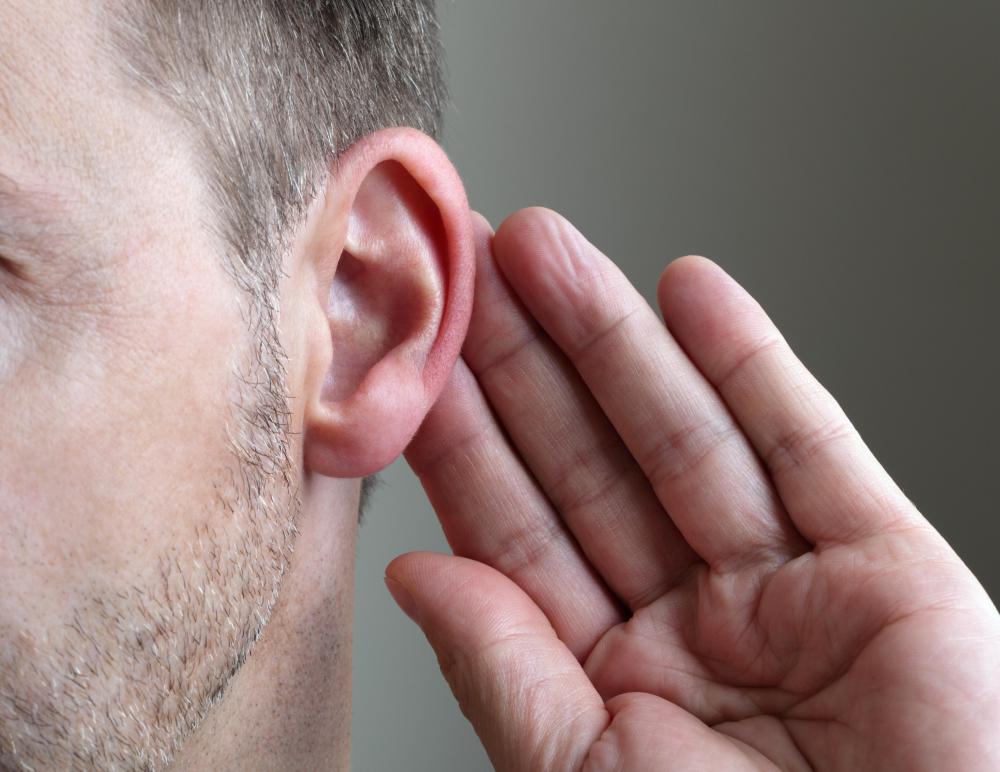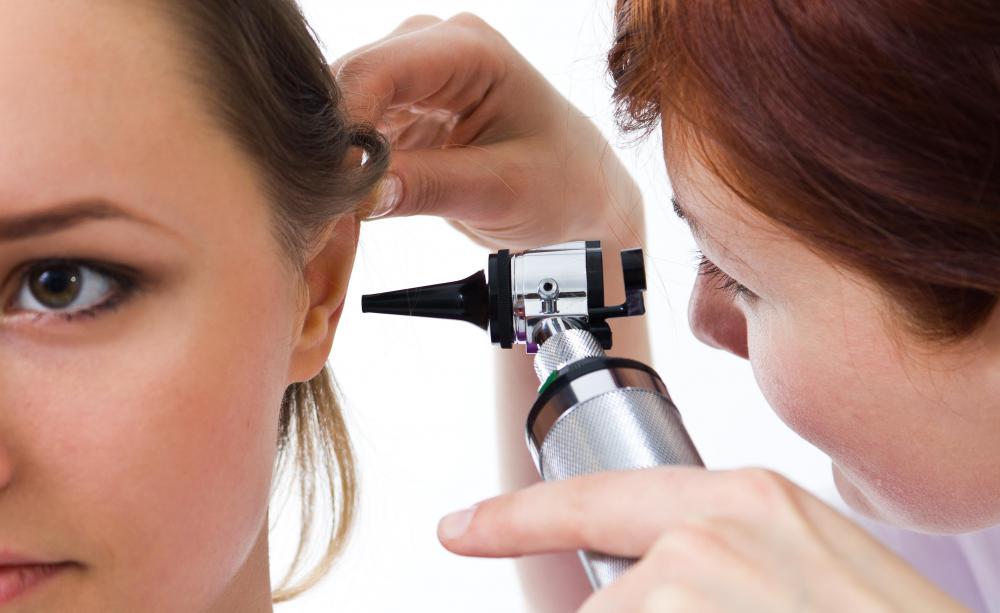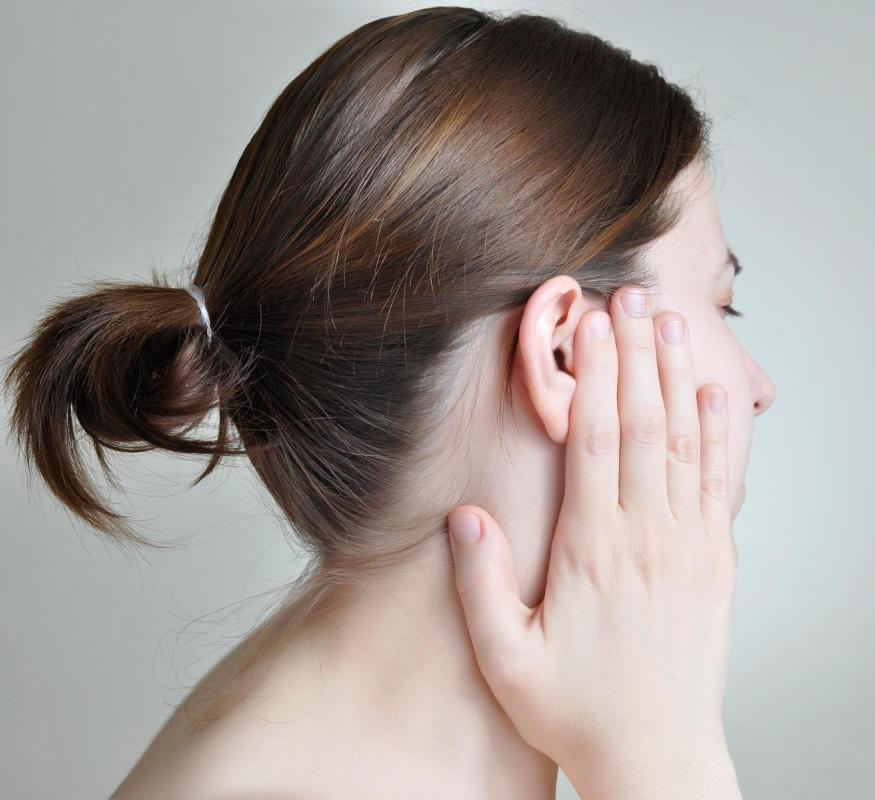At WiseGEEK, we're committed to delivering accurate, trustworthy information. Our expert-authored content is rigorously fact-checked and sourced from credible authorities. Discover how we uphold the highest standards in providing you with reliable knowledge.
What is Sudden Deafness?
Sudden deafness, or sudden sensorineural hearing loss (SSHL), is experienced when an individual experiences an abrupt loss of hearing in one ear. This deafness can occur suddenly or over a time period of about three days. Some individuals might not even become aware of the loss of hearing until they attempt to use the affected ear. SSHL is diagnosed through a simple hearing test and can be caused by many factors. Although this deafness generally is temporary, it is important that anyone who experiences a sudden hearing loss consult a physician immediately so that treatment can be administered.
Sudden deafness is diagnosed by a doctor through the administration of a typical hearing exam. Hearing is measured in decibels and frequencies. If someone who has experienced an abrupt loss of hearing is determined to have had a hearing loss of 30 decibels or more in at least three connecting frequency points, the diagnosis of SSHL is made by the administering physician. A 30 decibel hearing loss is equivalent to half the normal hearing level.

SSHL occurs most frequently in individuals who are 30-60 years old, though the reason for this is not evident. This deafness can strike for a number of possible reasons, including trauma, abnormal tissue growth, circulatory problems or an immunological disease. The possible causes of sudden deafness are numerous, and the exact reason can be determined in only about 15 percent of these cases.

Although many individuals who experience sudden deafness first notice the loss of hearing upon awakening in the morning, others might experience a sudden popping sound just prior to the hearing loss. Still others might never recognize the loss of hearing until they attempt to use the affected ear. For example, the deafness might not be noticed until the individual tries to use the telephone or when someone speaks into the deafened ear. Dizziness and a ringing sound in the ears, referred to as tinnitus, are often experienced by those who suffer from sudden deafness. Some sufferers might experience both conditions, and others might be subjected to only one or the other.

This form of hearing loss is often temporary. Patients who have SSHL might experience a complete recovery without any medical treatment. This recovery might occur gradually over a period of a couple of weeks, or it might be as spontaneous as when the hearing loss occurred. Regardless of this fact, anyone who experiences a sudden loss of hearing should immediately consult a physician.

Treatments for SSHL vary according to the specific situation. If the cause of the hearing loss is able to be determined, treatment might include antibiotics or a reduction in current medications that might be causing the sudden deafness. In the majority of cases, when a specific cause cannot be determined, steroids are administered as treatment. Although most individuals who experience sudden deafness recover completely, a small percentage might suffer a gradual hearing loss after the initial recovery.
AS FEATURED ON:
AS FEATURED ON:















Discuss this Article
Post your comments